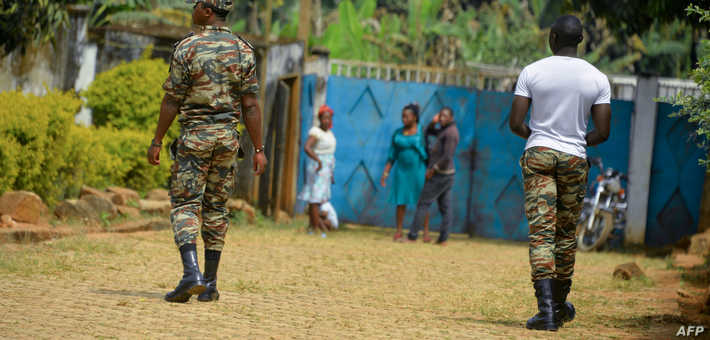Catholic bishops from around the world are calling on the Cameroon government to hold urgent peace talks with the country’s English-speaking separatists and moderates.
Church leaders are urging the country’s president, Paul Biya, to enter into negotiations to find a peaceful settlement that addresses the grievances of the Anglophone community.
A Swiss NGO has offered for talks to be held in Switzerland and is supported by most Anglophone groups with the Global Campaign for Peace and Justice in Cameroon saying it represents the “best way forward”.
Bishop Ray Browne of Kerry diocese and Bishop Alphonsus Cullinan of Waterford et Lismore diocese are among the clergy who have signed an open letter calling on President Biya to address the crisis.
“A lasting solution to Cameroon’s problems must come from a mediated process,” read the letter.
“We believe the proposed Swiss-led talks offer the best path to an appropriate political solution through inclusive negotiations.
“Only true peace will allow Catholic dioceses, clinics, and schools to once again minister safely to the blessed congregants and citizens of Anglophone Cameroon.”
Burned villages
Human rights groups report that both the Cameroon armed forces and secessionist militias have terrorised unarmed civilians, burned villages, closed schools, hospitals and brought the economy to a stand-still in English-speaking regions of the country.
The United Nations (UN) estimates that 656,000 Anglophone Cameroonians have fled their homes to avoid the violence, while at least 2,000 people are thought to have been killed.
Civilians, including Catholic priests, have been kidnapped, and Catholic-run schools and clinics have been forced to close with an estimated 800,000 children unable to attend school.
The clergymen have asked President Biya, who has been in power since 1982, to join inclusive Swiss-led negotiations to find a peaceful solution to long-standing violence in the country’s North West and South West regions.
Cameroon has been gripped by conflict between the French-speaking majority (80%) and the historically-marginalised Anglophone minority (20%), who seek to breakaway and form their own country.
Tensions
Tensions peaked in 2016 when the Francophone-dominated regime of President Biya imposed French judges and judges on English-speaking courts and schools.
Anglophone opinion on the issue is split: hard-line separatists demand that the English-speaking regions become a new country called ‘Ambazonia’, while more moderate Anglophones seek increased autonomy or devolution through a Quebec-style constitutional settlement.
The Church, which represents moderate Anglophone opinion, calls on the government to allow a genuine, inclusive dialogue and to investigate attacks on civilians. Bishops though warn that the situation may deteriorate further.


 Soldiers patrol in Bafut, Cameroon.
Photo: AFP/voanews.com
Soldiers patrol in Bafut, Cameroon.
Photo: AFP/voanews.com 